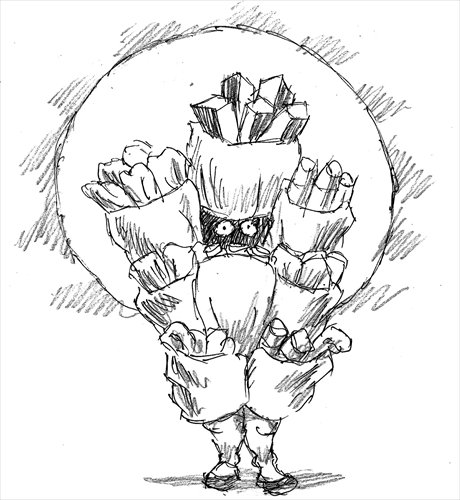Tokyo shoppers are canny bargainers, not traitors

Illustration: Peter C. Espina
It's not that strange that Chinese nationals flock out of the country and spend heavily overseas during holidays. Although only about 0.03 percent of Chinese travel abroad in the "Golden Week" of the National Day holiday, that's still a lot of people. But when the destination is Japan, locked in historical and territorial tensions with China, things get complicated.
Japan overtook South Korea as the most popular destination for Chinese tourists during the weeklong National Day holiday that has just ended. Widely circulated pictures showed Chinese tourists crammed in shops and department stores in Japan, hands full of bags and boxes with other goodies piled up beside them. The items highest on the shopping list of Chinese have shifted from rice cookers and toilet seats to drugs and stationary.
To welcome Chinese consumers, some Japanese stores even put up banners in Chinese to celebrate the National Day. Special discounts were provided for Chinese tourists and ways of payment popular in China, such as WeChat and Alipay, were also newly accepted in some department stores.
This primarily shows the enormous purchasing power of Chinese tourists, which has made significant influence on many parts of the world. However, these visitors might have not expected that their traveling and shopping has kindled fierce condemnation back home. They were accused of being not patriotic as they helped boost Japanese economy during the holiday and were even called traitors by some netizens. Yao Ming, the famous Chinese basketball player, was also a target of the wild accusations since he was caught traveling in Japan during the holiday.
In China, patriotism is an easy go-to when it comes to Japan-related issues. Doing anything good to Japan means "betraying the motherland" and staying away from Japan will then be a patriotic act. This is narrow-minded and absurd.
Chinese consumers that are getting richer are willing to spend money to have higher standards of life. While Japanese products are known for high quality, thoughtful designs and reasonable prices, it's natural for consumers who are able to afford them to buy what they need and want. If these indignant netizens had a chance to visit Japan, probably they would take it and also shop happily.
Nowadays, many Japanese products are partly made in China. Shutting the door against Japan will actually hurt many people in China. In fact, closer economic ties and people-to-people exchanges can help China and Japan pull their strained political relations back on track.
It has been repeatedly pointed out that the fanatical shopping overseas by Chinese tourists indicates the inadequacy of China's manufacturing. China needs to accelerate its industrial transformation and upgrade the manufacturing to make goods competitive and attractive, instead of secluding from the outside. Measures are also needed to make domestic shopping a pleasant and profitable experience so that consumers can stay. It will be true patriotism if we contribute to making Chinese products more competitive and gain the recognition and respect from worldwide.
The author is a reporter with the Global Times. sunxiaobo@globaltimes.com.cn